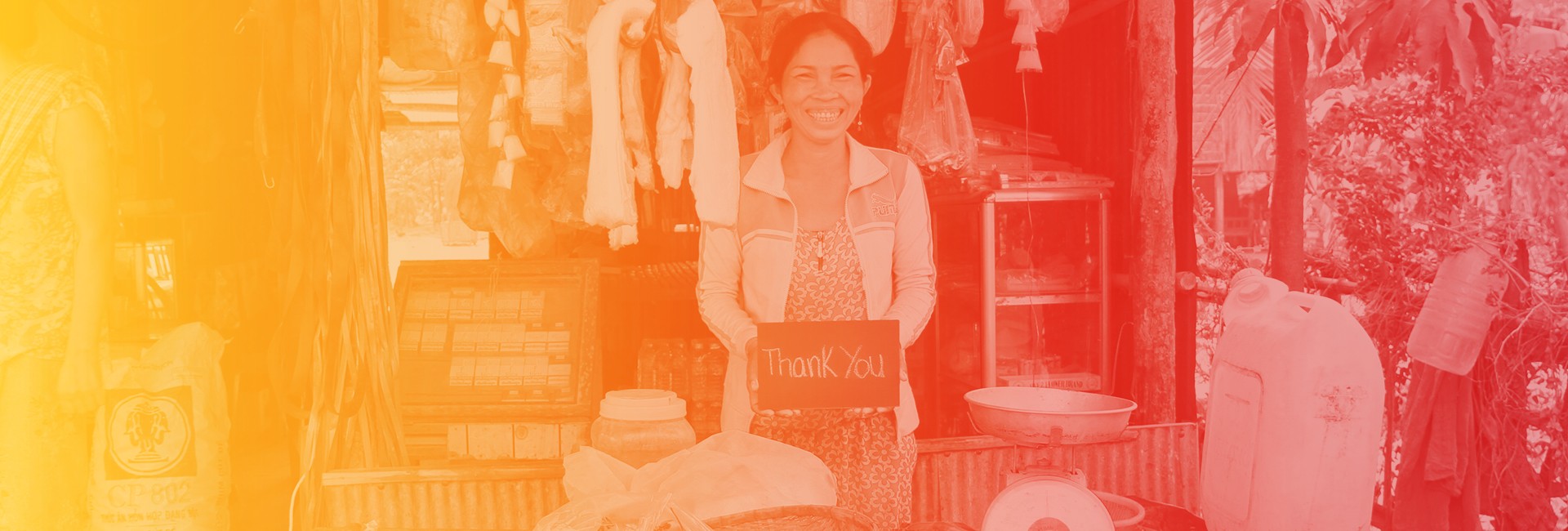Chork Kaen looks at ease as he sets out to feed and tend to his chickens in his home village of Takeo, Cambodia. He expresses his happiness that the profits from his chicken raising business enable him to send his children to school and support the construction of water and sanitation facilities in his local community.
But life hasn’t always been like this for Chork. Blind since birth, he has had to live with the stigma of disability in a culture where it is often considered a result of wrongdoing in a past life. When CUFA staff first spoke to Chork he told stories of people who, rather than calling him by his first name, would call him “Khvak,” literally “you’re blind” in Khmer.


When his wife passed away, leaving him to care for his three children, he was subject to taunts that his wife had not died but in fact run away because he was blind. This took a toll on his confidence and forced him to become reclusive, staying home with his children and rarely visiting public places or participating in community activities.
That began to change in 2012 when, following several visits from CUFA staff, Chork decided to join his local savings bank. During this time, CUFA had also been working with the local community to destigmatise disability and promote inclusion for all members of society.
As a member of Khvav Savings Bank, Chork was eligible to join the waiting list to become a Village entrepreneur and began working with CUFA’s Coordinator to develop a business work plan. Initially lacking confidence and fearing he had no valuable skills, Chork began to realise that he knew quite a lot about chickens, especially about seasonal diseases and how to keep them healthy. He also thought of some the difficulties he might face given his visual impairment.
Together with the Coordinator he decided to ask his neighbour for some assistance, to help him count his chickens each evening to make sure none had gone missing and ask his sister and her husband to come to training with him so they could together learn how to build a chicken coop.
In June 2013, Chork received the good news that an Australian Community Investor had chosen to support his business. With his start-up capital, Chork bought some materials to build a good chicken coop; bamboo and wood for $20, 10 chicks for $40 and some chicken food for $30.
Chork then attended quarterly training where he learnt about marketing, how to source suppliers, how to build a secure chicken coop, how to keep his chickens healthy, especially in the hot season, by watering the coop and how to make organic chicken food.Chork learnt that to keep his chickens healthy they needed vitamins and protein. He planted some vegetable seeds and, as the vegetables grew, added the extra that he didn’t eat to the chickens’ food.
When the CUFA Coordinator came to visit Chork on his quarterly visit, he helped Chork and his daughter record profits, expenses and sales. From the first quarter Chork had made $8 profit. The Coordinator helped Chork with ideas on how he could use this profit and Chork decided to buy 5 more chickens and contribute some of his savings to do this. His neighbour Sokhorn, also a Village Entrepreneur, offered to help Chork count his chickens each evening and to help him record his profits.
Chork’s success increased steadily each quarter and in March 2015 his business profits had hit $208. He had also continued to save $2.50 each month, allowing him to provide his children with an education, new school uniforms and school books.
Chork now hopes to expand his traditional medicine business and build a second chicken coop and additional water and food trays to accommodate his expanding chicken range. He is now much more confident and his success has played a crucial role in destigmatising blindness and disability in his community.
If you would like to empower someone like Chork to improve their life, visit the Village Entrepreneur website and read about those who are waiting for a small hand up from someone like you.
Your sponsorship will provide invaluable support and training that can change someone’s life for the better.
Article by Keira Morris-Akeroyd and Alison Darcy







